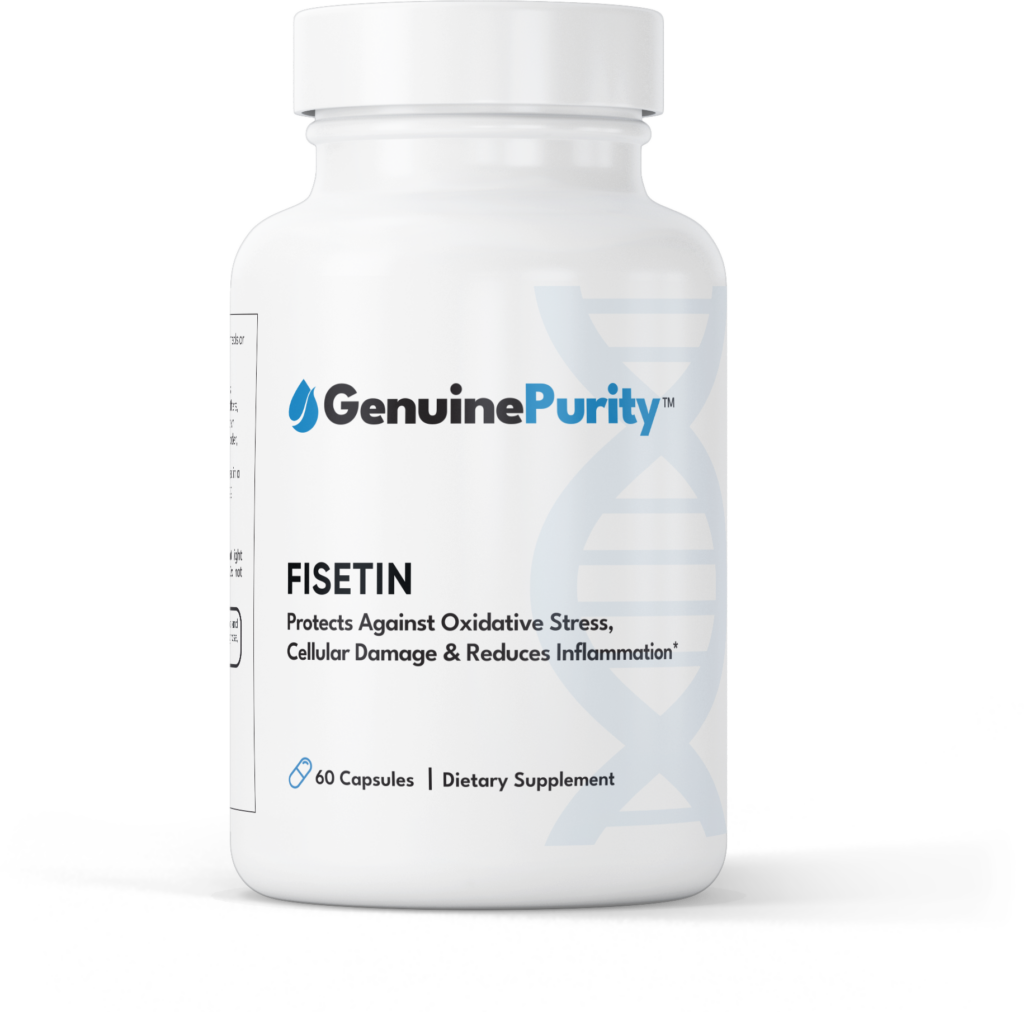Who doesn’t want to feel young and vibrant for as long as possible?
While we search for the next best anti-aging cream or chase the latest trend, something sneaky is working against us – oxidative stress.
If you haven’t heard of it, you’re not alone. Turns out, it’s not just late nights and bad diets; oxidative stress steals our youthful glow, energy, and mental sharpness like it’s on a mission to fast-forward the aging clock.
It goes beyond needing an extra coffee to make it through the day or the fine lines you wish weren’t there. The culprit isn’t some mysterious force of nature. It’s the result of our daily habits.
Oxidative stress happens inside your body, quietly speeding up the aging process in ways you might not even notice. But before you start panicking about your youth slipping away, there’s good news. There are natural ways to slow oxidative stress down.
Today, we explore the ins and outs of oxidative stress – what it is, how it happens, how it ages us, and how you can keep it in check.
The Silent Thief of Youth: What Is Oxidative Stress?
Oxidative stress may sound complicated, but it’s just your body’s way of dealing with an overload of free radicals. It occurs when there’s an imbalance between those free radicals and antioxidants.
Free radicals are unstable molecules that float around inside you, looking for something to latch onto. When they find a healthy cell, they go wild, like a bunch of troublemakers crashing your body’s party, causing damage in their wake.
Antioxidants support the body’s defense system, neutralizing these free radicals before any damage is done. But when there’s an imbalance and your antioxidants are outnumbered, oxidative stress kicks in.
How It Happens (And Why It’s So Common)
Oxidative stress is like a slow-motion train wreck that you overlook until the effects start to show on your skin, energy levels, and overall health. It happens when free radicals start running amok in your body.
Although free radicals are formed naturally, modern life practically invites oxidative stress into our bodies. Free radicals multiply when exposed to the following triggers:
- Processed foods
- Pollution
- Lack of sleep
- Sun exposure
- Smoking
- Excessive alcohol
- Everyday stress
Without enough antioxidants to keep them in check, free radicals start attacking healthy cells. Damage to cells, proteins, and even DNA leads to faster aging.
This damage happens slowly, so you don’t realize it’s taking a toll until you notice those fine lines, feel more sluggish, or struggle to remember where you left your keys.
Unless you’re living in a bubble or guzzling kale smoothies, oxidative stress is probably happening as you read this. But just because it’s common doesn’t mean you’re powerless against it.
Keep reading to learn how oxidative stress affects your health and wellness.
How Oxidative Stress Affects Aging
Oxidative stress happens deep inside your body, aging you in ways that become pretty hard to ignore. It fast-tracks the signs of getting older that we’d all like to avoid, from your skin to your energy levels and even how well your brain is working.
Here are five ways oxidative stress is robbing you of your youth.
Energy and Fatigue
If you’re feeling more tired than you should, it could be oxidative stress at work. Free radicals attack your mitochondria, the little powerhouses inside your cells that produce energy, reducing energy production in the body.
When mitochondria are damaged, the body can’t create energy as efficiently, leaving you feeling sluggish and tired.
It’s like trying to charge your phone with a partially broken cable. It will work, but much slower, and you’ll likely be frustrated waiting for it to catch up. This is what oxidative stress does to your energy levels – it zaps them over time to make you feel worn out faster.
Cognitive Decline
Oxidative stress could also be why you’re feeling foggy or extra forgetful lately. Just like it messes with your energy, it also wreaks havoc on your brain.
Free radicals damage brain cells, leading to issues with focus, memory, and overall brain function. Over time, this damage can contribute to more severe problems, but let’s not go there right now.
Oxidative stress may be partly to blame if you’ve ever struggled to recall someone’s name or forgotten why you walked into a room.
Skin and Appearance
Wrinkles, fine lines, dark spots, and sagging skin – oh my! The most obvious place to see the effects of oxidative stress is your skin.
Have you noticed how too much sun can bring on premature wrinkles? UV rays are one of the biggest contributors to oxidative stress, making free radicals multiply like crazy.
Free radicals damage skin cells, breaking down collagen and elastin, the proteins responsible for keeping skin firm and bouncy. When those proteins are weakened, you start to see the visible signs of aging.
Oxidative stress snips away at the strings that keep your skin firm as if it has a personal vendetta against your glow, making your skin age faster than you’d like.
Joint and Muscle Aging
Oxidative stress doesn’t just mess with your energy and looks; it also targets your joints and muscles. Free radicals contribute to inflammation, quietly contributing to faster aging, making them stiff and achy.
From that nagging stiffness when you get out of bed to those little aches that stick around longer after a workout, oxidative stress increases the wear and tear on your joints. Over time, this can cause you to feel less mobile and more prone to discomfort.
Oxidative stress is like someone adding extra weight to your daily routine without you noticing.
Immune Health
The immune system isn’t safe from oxidative stress either. If you seem to be catching more colds or taking longer to bounce back after getting sick, oxidative stress could be slowing down your body’s defenses.
Free radicals weaken the immune response, making it more difficult to fight infections and recover quickly from illness. Oxidative stress makes it easier for everyday health issues to linger and harder for you to remain as strong and resilient as you once were.
Here’s the good news: while oxidative stress can speed up aging, there are practical ways to slow it down. Next, we show you how to fight back.

How to Prevent Oxidative Stress
While we can’t avoid free radicals altogether (they’re everywhere), let’s talk about how to stop oxidative stress in its tracks. The key to keeping oxidative stress at bay is simpler than you might think.
You can keep those pesky free radicals in check with a few lifestyle adjustments. Don’t worry – we’ll show you how to keep that youthful glow intact.
#1 Load Up on Antioxidants
Now that you know antioxidants are the bodyguards that take down free radicals before they can cause damage, it’s time to load up on them. The more antioxidants you have, the better your body handles oxidative stress.
Boost your antioxidant levels by eating a diet rich in fruits and veggies, especially colorful ones like spinach, berries, and sweet potatoes. Green tea, nuts, and seeds are also packed with antioxidants. Feel free to toss in a few squares of dark chocolate (yes, really).
If your diet doesn’t provide enough antioxidants, natural supplements can help fill the gap, giving your body the extra protection it needs.
#2 Make Lifestyle Adjustments
A healthy lifestyle can significantly reduce oxidative stress. Sleep isn’t just for beauty rest; it’s time for your body to reset and fight oxidative stress. Prioritize getting adequate sleep.
Regular exercise helps boost your body’s natural defense system, though it’s essential not to overdo it. Intense workouts can actually increase oxidative stress, while moderate exercise boosts antioxidant defenses and reduces oxidative damage.
Try to cut down on alcohol, quit smoking, limit your exposure to UV rays, and manage your stress levels. Chronic stress increases free radicals, so find ways to unwind through meditation, yoga, or simply laughing more.
#3 Consider An Anti-Aging Flavonoid
Fisetin is a little flavonoid that is gaining attention for its anti-aging properties. It may not be a household name yet, but this powerhouse is found in fruits like strawberries and apples and packs a serious punch against oxidative stress.
This naturally occurring flavonoid is quickly becoming a favorite in the world of anti-aging because it helps protect cells from aging faster than they should. By boosting the body’s defenses and neutralizing free radicals, fisetin protects the skin, brain, and energy from oxidative damage.
Adding natural supplements like GenuinePurity Fisetin to your routine could help keep your body resilient as you fight oxidative stress.

Take Control of Your Aging Process
Aging may be inevitable, but letting oxidative stress speed it up doesn’t have to be. Start small – make a few lifestyle tweaks, increase your antioxidant intake, and consider adding supplements like GenuinePurity Fisetin to your routine.
You may be unable to stop the clock, but you can certainly slow it down. Don’t let oxidative stress call the shots—stay proactive and keep feeling (and looking) your best for years to come.

